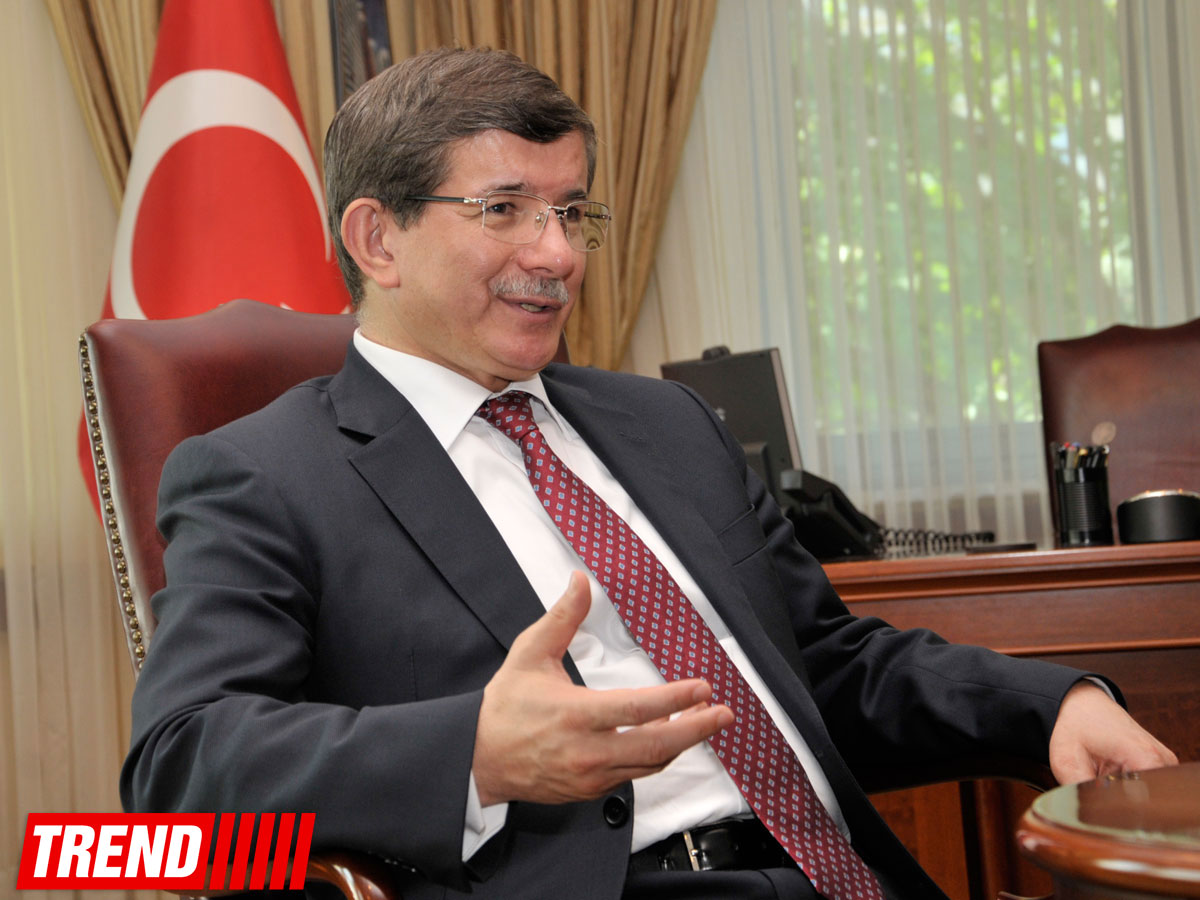Turkish Prime Minister Ahmet Davutoglu has argued late Wednesday that groups like Islamic State of Iraq and the Levant had gained ground in Iraq because theSunni community had been "alienated" from political life Anadolu Agency reported
Davutoglu made the remarks during a live late night appearance on Turkey's state broadcast channel TRT, a day before departing for Iraq to meet with Baghdad and Erbil officials to discuss Islamic State of Iraq and the Levant, or ISIL, as well as energy issues.
"I can resolutely say that ISIL couldn't have assumed dominance in those regions if the Sunni politicians had not been excluded from the (political) system especially after the U.S. forces withdrew in 2011," he said.
ISIL militants took over large swathes of Iraq since last June.
There has been continuous fighting between ISIL and the Iraqi army along with peshmerga fighters - aided by U.S-led coalition airstrikes - from the northern Kurdish region.
The Turkish prime minister said the central government in Baghdad had lost control of around 35 to 40 percent of its territory.
He insisted that, following more than three decades of wars and conflicts, the Iraqi parliamentary elections in 2010 had not yielded the desired result as certain parts of the society were excluded because Prime Minister Nouri al-Maliki established a predominantly Shiite cabinet.
"We had told Maliki not to exclude Sunnis, to fulfill his promises for Kurds and keep Turkmen and different Shiite groups in the political system," said Davutoglu.
In an effort to reduce ethnic and sectarian divisions in Iraq, the new Iraqi Prime Minister Haider al-Abadi formed a new government early in September, after Maliki was unseated.
"If the political situation in Iraq had included the Sunni, Shia and Kurdish populations equally then the situation would have been different today," had said Masrour Barzani, the intelligence chief of the Kurdish regional government in northern Iraq, early November.
Davutoglu maintained that Ankara favored an Iraq where all people were represented, saying: "That's why we are the ones most pleased by the deal between Erbil and Baghdad after Kurdish PM Nachirvan Barzani's visit to Turkey."
The Iraqi central government and the Kurdish Regional Government, or KRG, came to an agreement to resolve the conflict over oil exports, i.e. the Kurdish region's right to sell the oil it drills, last Friday.
During his two day visit to the country, Davutoglu will meet Iraqi President Fouad Massoum, Prime Minister Haidar al-Abadi, and Iraqi Parliament Speaker Salim Jabouri along with Turkmen deputies and other representatives of the Turkmen community in Baghdad.
He will proceed to the Iraqi Kurdish capital of Erbil to meet the regional president Massoud Barzani and Prime Minister Nachirvan Barzani.
The Iraqi PM Abadi will also visit Turkey in January, said Davutoglu.
He also mentioned plans to hold a joint cabinet meeting to gather at least 10 ministers in total from the two countries to discuss cooperation in transportation, trade, and investments.
The Turkish premier added that Russian President Vladimir Putin was scheduled to pay a visit to Turkey on December 1 to hold a High Level Strategic Cooperation Council meeting after which Davutoglu himself will travel to the Greek capital, Athens, for a similar meeting with his Greek counterpart on December 5 and 6.






